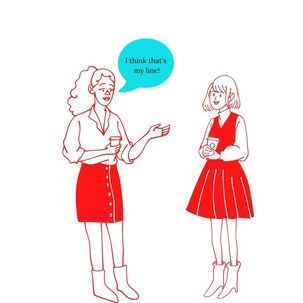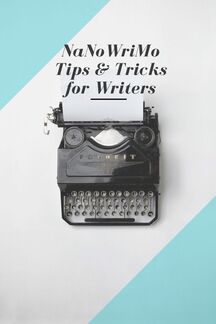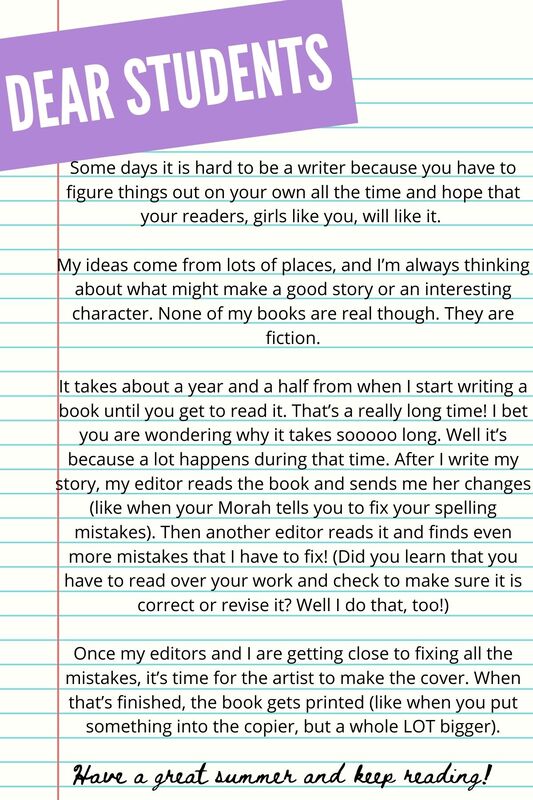|
Toward the end of last school year a teacher contacted me. Her students had read my books and wanted to write me letters. She wanted to know if I'd respond if she sent the letters my way. I was so excited and said that I'd love to respond. I waited. And waited. And waited. It was June. School would be ending soon and still no letters. I wrote back to the teacher. She had mailed them the day we talked, but they never arrived. Knowing that there were only a few days left in the school year I wrote a general letter to the students to about being a writer. I wish I could have read their letters and seen what was on their minds, and answered each letter individually. I had to settle for a general letter and here's what I came up with ...
0 Comments
Working on a new book in an ongoing series is amazingly rewarding. It means you have readers eager for what you have to say. It also means you get to spend time with your characters, who, hopefully, are like old friends.
But revisiting those old friends brings its own challenges. Not only do you have to remember what you did before so you don’t repeat a plotline, you have to consider the “rules” of the world you have built for your audience. For my Layla’s Diaries series, that world is not so much her physical space as both books in the series take place in different venues, but in the storytelling technique. As the series name suggests, everything is told through Layla’s diary entries. There are definite benefits to telling a story in this format—I love the breezy, carefree style of the diary entries, the brevity of the “chapters,” aka each diary entry. It is this very style has led to some reluctant middle-grade readers to pick up and devour the first book, Layla’s Vistaville Summer, and its sequel Layla’s Sugarland Winter, which was released late last year. I’m thrilled that I can provide these readers with stories they love. (Plus, I LOVE writing Layla she’s a hoot.) However, as a writer, the limitations of writing in this format present interesting challenges as I try to balance my desire to dig deeper into who the characters and tell more of their stories with readers’ expectations of the series. For instance, as much as I would like to know exactly what Shira thinks of her cousin, Layla, I can’t delve into that too much. I can, however, allude to it through Layla’s observations of Shira’s actions and words. Readers of the first book, know that Shira doesn’t have patience for her cousin, isn’t fond of mysteries and is bossy. They know it not just because Layla tells them, but because Shira’s been known to fold her arms across her chest, sigh deeply and shake her head at her cousin’s sometimes crazy ideas. Likewise, readers of my Achdus Club books, expect that at the end of every book the girls in grade four will still be friends. They may have fights and disagreements in the middle of the book, but at the end of the book, their issues need to be resolved because friendship is at the core of the series. To suddenly have a character decide they are better off without their friends, would betray the connection and trust between me as a writer and my readers. Staying true to the tone, format and style of an ongoing book series is a pact the writer makes with reader. Finding a way to make that happen and still provide a compelling new story readers will love gives authors an opportunity to grow and challenge their writing and storytelling skills. WRITERS: Do you juggle multiple stories at one time? How do you ensure that you stay true to the world in your novel?  Have you ever heard a friend say something and you immediately think that’s such a “them” thing to say? Or have you identified a catchphrase that only they use or the way they use certain words and expressions that lets you know they are speaking even if you aren’t looking at them. That is their unique voice coming through. Every time you hear “IT” you know who is speaking. That unique “voice” is critical when building your novel. Each major character needs their OWN voice so readers can connect to them. When done correctly, voice not only conveys who is speaking, but it can also tell you lot about the character as an individual. On a basic level, think about regionalisms like the pronunciations of roof vs ruff or tomato vs. tomahto or soda vs. pop. Then take it to the next level. A girl raised in a very rural area isn’t likely to have the same dialogue structure as someone raised in an inner city. A 3-year-old will have a very different vocabulary than a 9-year-old or a teenager. Giving “voice” to your characters can be a challenge that even veterans writers face. This came up for me recently when I was reviewing a manuscript. I got to specific scene when I was struck by a line of dialogue. I immediately thought to myself “What’s that character doing in this scene?” Turns out that character wasn’t in the scene, only her “voice” was. How is that possible? It’s because the dialogue was in her “voice” and not the “voice” of the character who had been speaking. Now, I know what you are going to say … but that’s why we write “said so and so.” The problem is “said” gets tedious when repeated over and over again in a novel. (The rules are different in journalism, please always use attribution in those cases!) YOUR HOMEWORK: How do you know if your characters have a “voice”? Take a page from your WIP (work in progress) and ignore the tags (said Jane or said Joe) and focus on the line of dialogue. Can you tell who is speaking without looking at the tag? If so, then you’ve captured their voice. If not, go back and see if there’s a way to rewrite the dialogue using their voice. I’m not suggesting every single line of dialogue needs to have this level of attention, but it’s definitely worth it for scenes that are crucial in your story and are at the book’s emotional core. The more you work on this, the more naturally it will come to you. Good luck!  It's hard to believe it's already December 1! Where has the year gone? Heck, where did November go? It was just a few weeks ago that NaNoWriMo, National Novel Writing Month, started and sadly it's already over. As you know, I signed up with the best of intentions, knowing that November was a particularly busy one for me. Between prepping for my book launch, the presidential elections, Thanksgiving travel and previously scheduled writing assignments, I knew that trying to write 50,000 words in a new novel would be problematic. Indeed, I fell far short of my goal. I discovered that while I'm great at giving advice (don't get discouraged, just keep writing, don't worry about the plot), I'm not as good as taking it myself. I made a few other discoveries along the way, as well. 1. There will never be "free" time to write. If it's not my priority, it won't be any one else's priority either. 2. My WIP (work in progress) does have some plot holes I need to figure out. I also need to do some research because that will have an impact on the way the story unfolds. 3. Whether I planned it or not (not, being the operative word), I find I'm challenging myself with each Achdus Club entry. This is a really good thing. As writers we need to keep pushing ourselves and our work. We need to continue to grow and strength our writing. We need to learn new storytelling techiques and new ways to express our characters thoughts and fears. 4. Rather than being intimidating, opening up a new blank writing document signals the start of something amazing. It's the promise of a fresh start, of unlimited possibilities and the chance to keep bettering myself. I love each new story beginning. It's only as I let my inner critic take over, figure after the first three thousand words or so that I really start to worry. By 10,000 words I'm questioning if there's even a story worth telling. Maybe the trick is to treat each part of the story as it's own beginning, middle and end. Perhaps if I work in individual "segments" (sort of like the three-act structure in screenwriting) it might be easier to quell my inner critic. I maintain that NaNoWriMo is a great way for creative writers to get into the groove of writing daily and making it a priority. That alone is worth the price of admission, whether you've reached the 50,000 word milestone or not. Will I participate again next year? Perhaps, but I know I've already learned the most important lesson -- just keep on writing. So I would love to tell you that I spent the weekend not only diligently writing 1,667 words each day. I would love to tell you that I surprised myself by exceeding the suggested daily word count and wrote pages upon pages.
But I can’t. I just wasn’t as nearly as productive as I had hoped to be. Oonce down the slippery slope of well if I didn’t do it yesterday, and I’m not going to be able to make up the missed writing days it seemed almost easy to stop. I’m not in the mood to write. I have other things to do on a Sunday. I want to relax. Excuses after excuses. They were piling up. Until I started to tell my husband I hadn’t made my NaNo word count Saturday or Sunday (it was still mid-afternoon at that point) to which he responded - "Well get busy, I’m counting on you." No he's not pressuring me to write, he's giving me the time to do because he knows how important my writing is to me. Plus, I loves seeing how the books turn out! He's a fan.  Ok, by now the excitement and new-ness of NaNo is starting to wear off and reality is setting in. Since I started on Monday, I have written almost 6,000 words. Sounds great right? It is, I’m very excited about my story and how it’s progressing. I’ve found that setting the timer on NaNo’s “Word Sprints” challenges really helps me focus when I have super-short intervals -- of maybe 10 minutes here and there -- and I know I would otherwise be wasting time because it’s only 10 minutes. (Try it and see how much you can write in 10 minutes, I guarantee you’ll be pleasantly surprised!) This all sounds good, until, I looked at the little bar on the my NaNo personal stats page and noticed the little line that says “At this rate you will on ...” Just the other day it said November 28. Excellent right? That was then and this is now, today it says I will be finished December 5. Now I know I have the whole day to accomplish my writing, but even if I make it to 1,667 today - there is virtually no chance I will be able to do so tomorrow what with the Jewish Sabbath and some prior (happy, fun and scheduled a long time ago) commitments that are slated for Saturday night. Does this mean I’m already doomed to fail at NaNo? Is it a failure if I finish on December 5? Will it matter to the universe if it takes me a few extra days to complete my story? Will the kids who read the third book in my series (which is my NaNo book) really know the difference when they hold the book in their hands? That would be a big, fat NO! And that’s what I will remind myself when I look at my personal stats page and see that it isn’t moving quite as fast as I’d hoped. I need to be happy with the progress I’ve already made and the progress I will continue making. And even when the dreaded “boring, sagging middle” rears its ugly head, I will keep moving forward to the best of my ability. And what if December 5 comes and goes and my story still needs work? Then, I’ll just close my eyes and imagine my readers sitting there reading the book once it’s done, whenever that is, and get back to work.  I was inspired by all the people I heard from who said they are going ahead and participating this year and, so, I went and registered. I'm officially doing NaNoWriMo. I'm not sure how that will work out given other prior writing commitments, but so far so good. In just two days, here's what I learned: * If I don't sit and watch the news or YouTube and surf Instagram, Twitter and Facebook, I can get a solid hour of writing done before work. (Yes, I did already know this, but it's always good to have a reminder. ) * Sometimes the best laid story plans come with absolutely no warning. * I am geniunely excited about what I wrote both yesterday and this morning. * Knowing that hundreds of thousands of people around the world are also participating and making writing a priority definitely helps. Here's what I'm still pondering: * What happens when I have to take a break to fulfill my other writing obligations? * If I don't reach 50,000 words, but still do a significant chunk of my new story will it still be a win? (I say yes, but you know ...) * What happens when the novelty of all this writing wears off and I'm left holding the pieces of a story that I can't make work? So here's my pledge: I'm going to keep going as much as I can and not worry about what happens if. I will consider it an accomplishment that I've set this goal for myself and that I worked as hard as I could for as long as I could while still doing all the other things that need to be done each day. I hope you'll join me and take this pledge. And I'll also really appreciate my husband who will understand that NaNoWriMo may put a crimp in what I'm making for dinner for the next few weeks. My word count as of this morning: 3,413.  Yes, writing friends, it is that time of the year. Time to sharpen your pencils, flex your fingers and begin pounding on the keyboard as November is National Novel Writing Month, aka NaNoWriMo. If you've never heard of NaNoWriMo, the concept is simple: If you write just 1,666 words per day, every day then by the end of November you will have written 50,000 words--the length of a short novel. Notice that I said the concept is simple, the acutality is a bit harder. After all, if you are going to write a novel in just a month you'll have to forgo some things (laundry, dishes, catching up on Netflix, etc.) and focus singularly on your writing. Can it be done? Sure! Last year more than 40,000 people wrote at least 50,000 words. (More than 430,000 people worldwide participated in NaNoWriMo overall last year.) Can you participate in NaNoWriMo without it being your ONLY focus for November? Yes. After all, we still have to deal with Election Day, Thanksgiving (just don't offer to host this year's festivities if you are participating in NaNoWriMo, it won't turn out well, trust me!), not to mention Veteran's Day, Black Friday and just, you know, your day-to-day life. So when do you write? During your bus or train commute, while waiting in the pickup line for school dismissal, While waiting at the doctor/DMV or other appointment, before breakfast (yes, you will be getting up early/staying up later to get your word count in), on the train or plane for Thanksgiving with the family, before sitting down to said Thanksgiving meal, after you've spent way too much money on Black Friday. You write instead of going for your usual manicure. You write instead of leaving your desk at lunch hour. You write instead of going to the movies or out with friends on Saturday night. In essence, you write anytime you can grab a few minutes during the day. (And if you have a flexible schedule that will allow you to write for an hour or two at a time, well, you are really lucky!) NaNoWriMo does take a commitment, but as a writer you have to make the commitment and show up and do the work. Plus, it's a great challenge and a wonderful way to flex your writing muscles.  If you read yesterday's blog you know that November 1 starts NaNoWriMo - National Novel Writing Month. The goal is to write every day for one month, allowing you to reach 50,000 words by the end of November and have a (short) novel-length story completed. Yes, it may seem overwhelming, but it is definitely do-able and fun to try. If you are planning to try your hand at NaNoWriMo here are some things to consider: 1. Jot down some story notes now: Because of the time-crunch that is NaNoWriMo, it helps to have some sort of plan of what your story will be about and who the main characters are. You may also want to sketch out a few key scenes or major turning points in the story. Now, I know that some of you don't like to plot out stories in advance (neither do I), but in this case having even a very, very loose map will help things go smoother. Especially if you only have a short amount of time each day to produce the maximum number of written words. 2. Don't worry about perfection: NaNoWriMo is not about finishing the perfect or even publishable manuscript. It is about getting words down on paper and creating a rough draft that you can later revise and rewrite. More importantly, I think, it's also about accomplishing something many people only dream about. 3. You are not alone: One benefit of NaNoWriMo is that you are not alone in this. Thousands of would-be writers, and quite a number of already-published authors, use this month to kick their work into high gear. Why not benefit from the vast number of supportive emails, blogs, workshops and more that exist for NaNoWriMo participants? 4. Public spaces will be open for "write-ins" Coffee shops, libraries and other gathering spaces have gotten used to the fact that during November, writers will stop in and bury themselves in their work. Some have special hours where you can join fellow writers and just write the hours away. The official NaNoWriMo website offers tips and inspiration to keep you going throughout the month. My own advice, don't think. Don't analyze what you are writing or what direction the story is going. Just go with the flow and the let the words unfold. NaNoWriMo is about stream of consciousness writing not award-winning, bestselling prose. Personally I think the real benefit of NaNoWriMo doesn't rest in the idea that you will finish a book in a month, but rather that you will join a collective of writers all of whom are making their creative endeavor a key priority in their lives.
I know there are people out there who can’t imagine writing short, tight narratives, just like I know there are people out there who can’t fathom wasting a single word and overwriting. I actually don’t fall into either of these camps, though, sometimes, I might wish I did.
As a journalist, I learned to write concise, tight stories that would fit in the confines of a set amount of space. Writing two columns of text meant exactly that. If I went over, the story and to be cut and cut and cut until it fit in the allotted space. Did I ever go over the column count? Of course, plenty of times. After all, who among us doesn’t think every word we right is amazing. Thankfully I had very strong editors who could guide me back on track and also find the gems hidden among some blasé, cliched phrasing. And eventually I learned how important it was to consider what I was really trying to say and find the best way to say it and keep my writing on target. The end result were stories that may have been shorter in length, but not in their impact. (For more on what makes your writing strong, check out The Elements of Style by William Strunk & E.B. White.) Fast forward a few years and thanks to the Internet it seems one can just write and write and write. No longer held back by word counts or column lengths, writers and would-be writers and just about anyone can pontificate on as long as they’d like. While in some cases this can be fantastic--a series on early-childhood education that I wrote for Chabad news needed all the editorial space I could get--this is a potential problem spot for writers. On the one hand, most people today live hurried lives. No longer will they sit down and savor a story that goes for 5,000 or 10,000 words. (No, I’m not talking about a book here.) In the era of same-day shipping and one-click shopping, our patience on a whole is short -- and so is our reading style. That does’t mean you can’t occasionally write a longer piece. As I noted earlier, some stories desperately cry out for a longer length. However, before you do write a super-long piece ask yourself what you want to say in your story and if everything you’re writing is relevant to your topic. If it is, and you really feel there’s nothing superfluous in your writing, than ask yourself if what you’ve written is a single article or perhaps a series of article centered around a common theme or idea. If it’s the former, then consider breaking the text up into segments using subheads, which are a great writing tool that gives readers a natural break if needed. If it’s the latter, you may be doing your readers a disservice by trying to jam it all into one story. However long you chose to write just make sure what you have to say is relevant, well-written and engaging. Ask yourself is this relevant to my main point, if it is keep it in. If it’s not, cut it out, file it away and consider it for a future story. No one said a unused tangent can’t become a salable story in its own right. |
